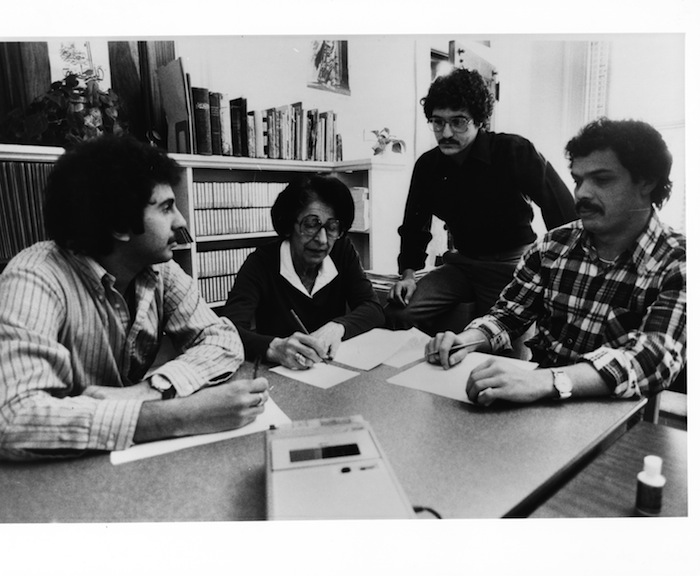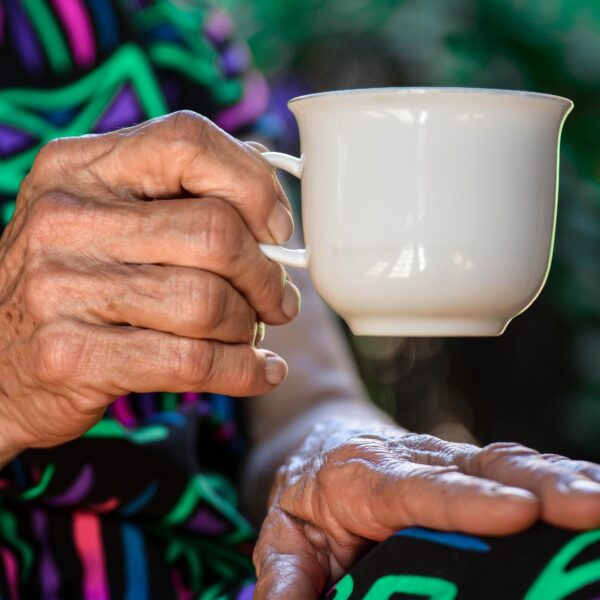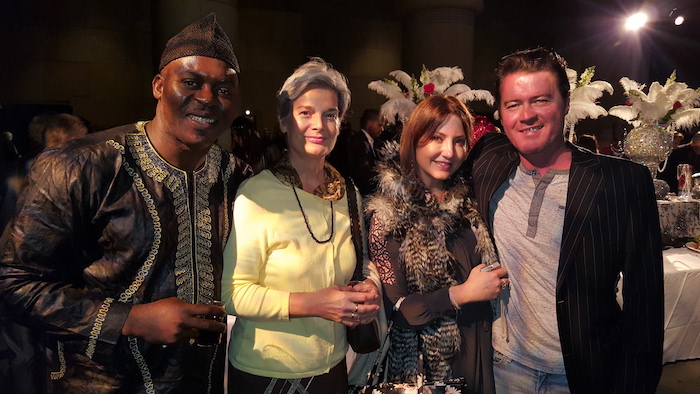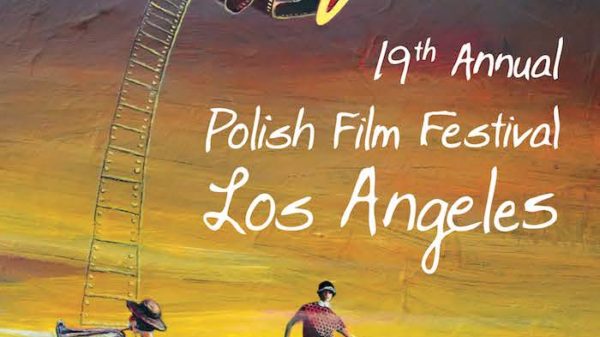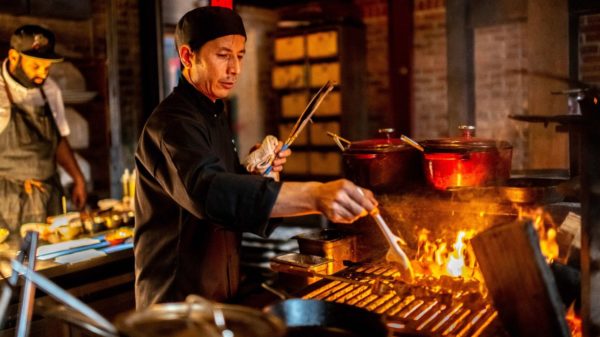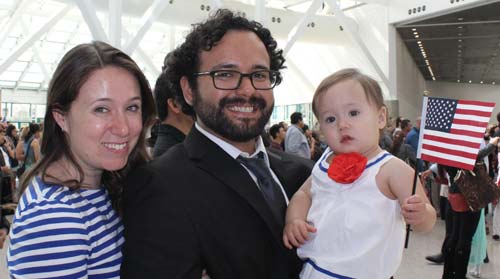70 first- and second-generation Lebanese and Syrian Americans tell their stories
DEARBORN, Mich.– Pioneering social scientist and researcher Dr. Alixa Naff set out in 1962 to document the personal experiences of Arab immigrants to the United States with only her reel-to-reel tape recorder, a grant of $1,000, her blue Volkswagen Beetle nicknamed “the camel” and a team of graduate students to assist.
The stories of first- and second-generation Arab Americans she collected now comprise the Faris and Yamna Naff Arab American Collection, housed in the Archives Center at the Smithsonian’s National Museum of American History in Washington, D.C. From 1984 through the mid-1990s, Naff worked as a volunteer archivist organizing, describing and adding to the collection she originated. Due to their outdated analog format and fragile condition, the only way for researchers to access these rare, highly desirable recordings was to visit the museum in person.
The Arab American National Museum (AANM) in Dearborn, Mich. – an Affiliate of the Smithsonian Institution since 2006 – is proud to announce a collaboration with the Smithsonian to digitize the 1962 Naff interviews and make them widely available to the public online. This collaboration is the first of its kind between the Smithsonian Institution and one of its Affiliates.
“The digital preservation of this one-of-a-kind collection of oral histories from early Arab American immigrants is important in not only ensuring these individual testimonies are readily available in an accessible modern format, but also in terms of the cultural and historical significance for future generations to appreciate,” says Devon Akmon, AANM director.
Converting these historical recordings involves the creation of a digital preservation master and an access copy. Thirty eight ¼-inch open-reel tapes from 1962 have been digitized and are now available for easy use by researchers and the general public. The interviews will be posted on the Arab American National Museum’s website for broad dissemination.
The Smithsonian will maintain the copyright of the recordings and AANM will become an access point both virtually and physically for the audio files. Once the oral histories are updated to a modern digital format, AANM will provide access to the materials through online collections located on the Museum’s collection website http://aanm.contentdm.oclc.org/.
“The collaboration between the Arab American National Museum and the National Museum of American History exemplifies the mission of the Smithsonian Affiliations program by making our national collections more readily available and accessible to researchers, scholars and interested individuals in the local community,” says Harold Closter, Smithsonian Affiliations director.
“Dr. Alixa Naff, with whom I briefly shared an office, was well known and respected by her Smithsonian colleagues for her intellect, passion and dedication to preserving the history of the Arab American community,” Closter adds. “We are delighted that her work will live on through the digitization of these pioneering and unprecedented recordings, and are very grateful to the Arab American National Museum for finding the resources to make this happen.”
The Naff Collection is geared to serve as a model to create similar historical collections that tell the important and fascinating stories of how diverse communities helped shape America during the 20th century. This project ensures that all Americans have the ability to learn more about the earliest Lebanese and Syrian American immigrants and their experiences in America. These important histories help to place the Arab American experience in context within the greater American narrative.
This strategic collaboration is aligned with several of the strategic goals set forth in AANM’s new strategic plan. Specifically, this project will help the Museum to become a more robust centralized repository for collections that represent the diverse Arab American experience; facilitate greater discovery and usage of collections and educational resources; and present high-quality exhibitions and programs that demonstrate national leadership.
In the 1960s, Dr. Alixa Naff, who’s featured in AANM’s Making An Impact permanent exhibit, traveled across the U.S. and Canada collecting dozens of oral histories of Lebanese and Syrian immigrants. These reel-to-reel recordings contain countless stories about the trials and triumphs of being an Arab immigrant in the early 1900s. Most of the stories collected focus on the role that peddling played in early Arab American communities and how many of these pioneers made a living by travelling door-to-door across America’s heartland, selling trinkets and goods from their homeland.
Naff, the daughter of Lebanese immigrants who grew up in Spring Valley, Ill., and Detroit, created the detailed oral history collection after working on an extensive research project in the study of the early Arab immigrant experience in the U.S., circa 1880 to World War II. During the documentation of these oral history interviews, a joint intellectual project between the interviewer and interviewee allowed for in-depth insight from an Arab American’s perspective in the areas of personal life, background, emigration, arrival, economic life, community and institutions, as well as politics.
This project is made possible by support from the Anthony R. Abraham Foundation, philanthropist Russell J. Ebeid, Friends of Alixa Naff Fund at Center for Arab American Philanthropy and by Arab Americans throughout the nation.
***************
The Arab American National Museum (AANM) documents, preserves and presents Arab American history, culture and contributions.
The AANM is accredited by the American Alliance of Museums; an Affiliate of the Smithsonian Institution; and a founding member of the Immigration and Civil Rights Network of the International Coalition of Sites of Conscience.
The Museum is located at 13624 Michigan Ave., Dearborn, MI, 48126. Hours: 10 a.m.-6 p.m. Wednesday, Thursday, Friday and Saturday; noon-5 p.m. Sunday. Closed Monday, Tuesday; Thanksgiving, Christmas Day and New Year’s Day. Admission is $8 for adults; $4 for students, seniors and children 6-12; ages 5 and under and Museum Members, free.
Visit www.arabamericanmuseum.org or call 313.582.2266 for further information.

